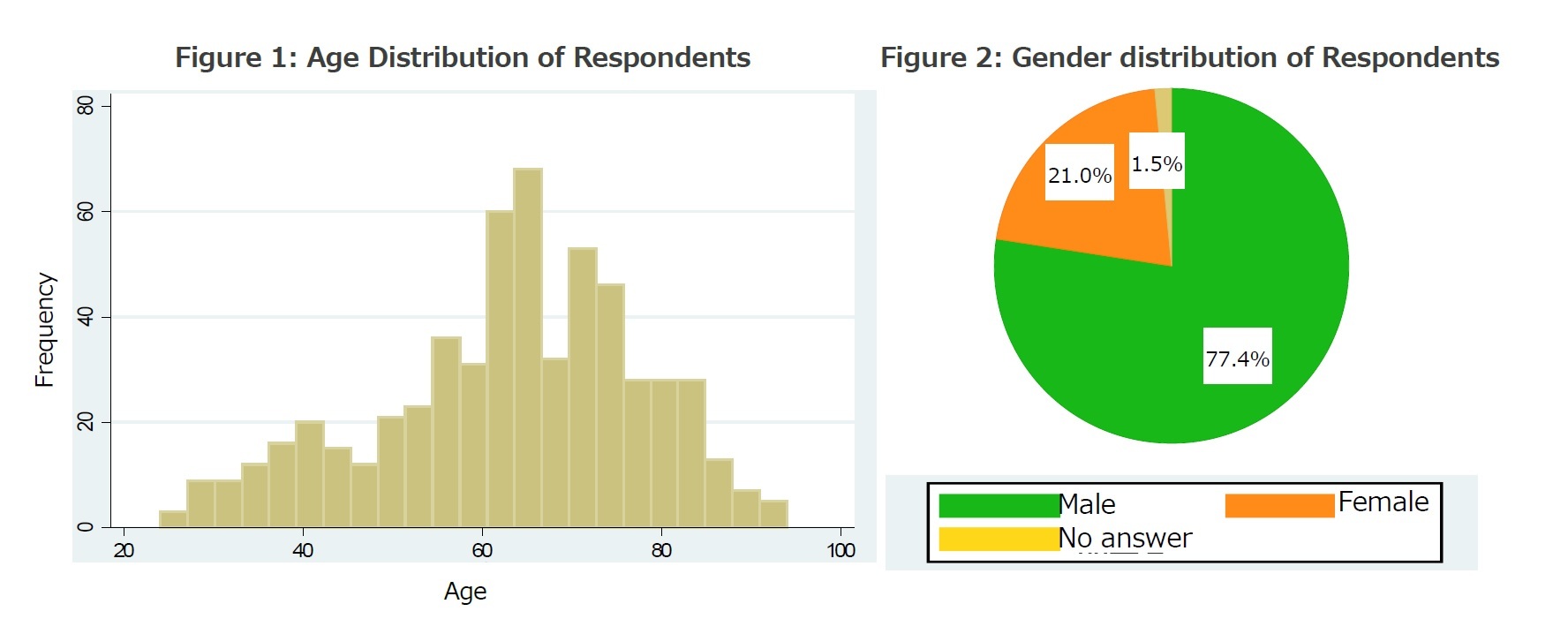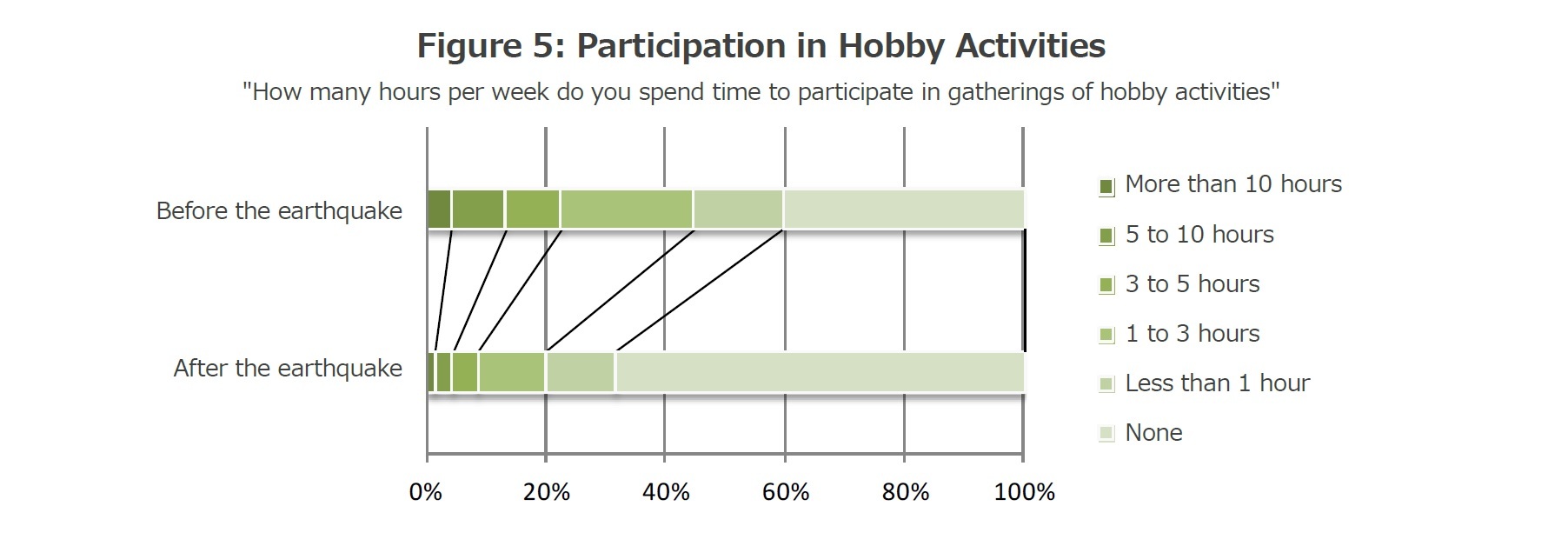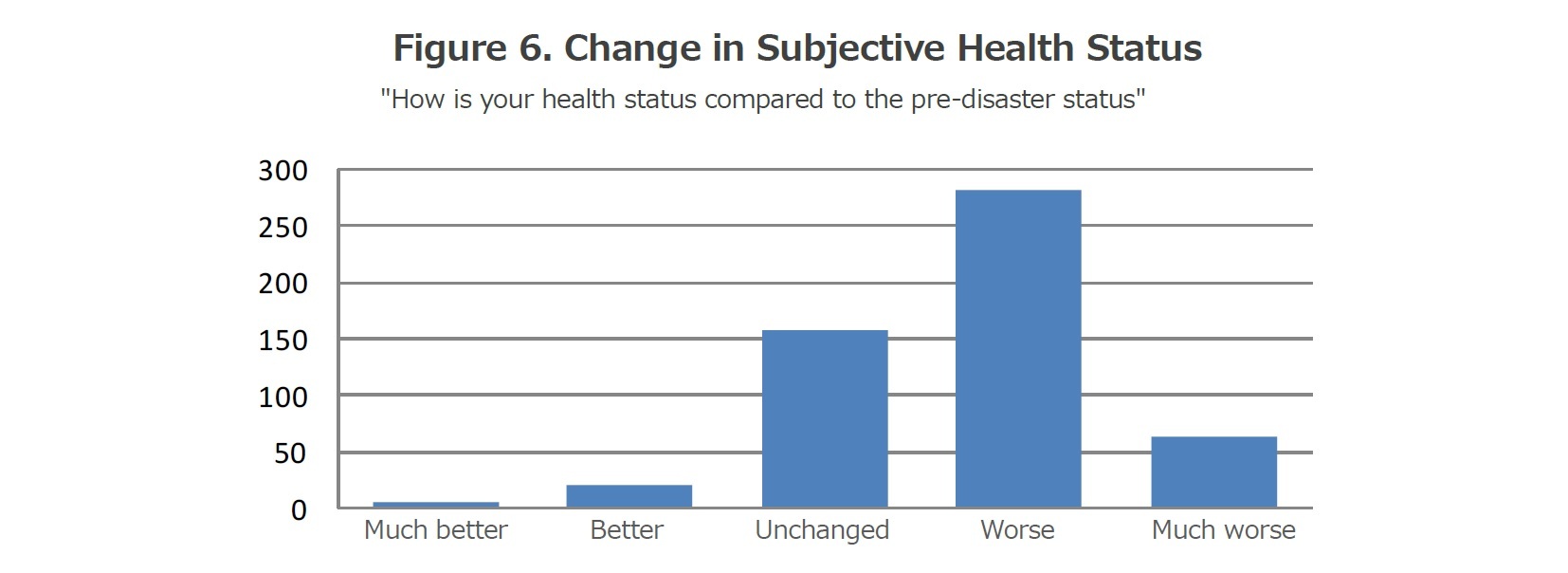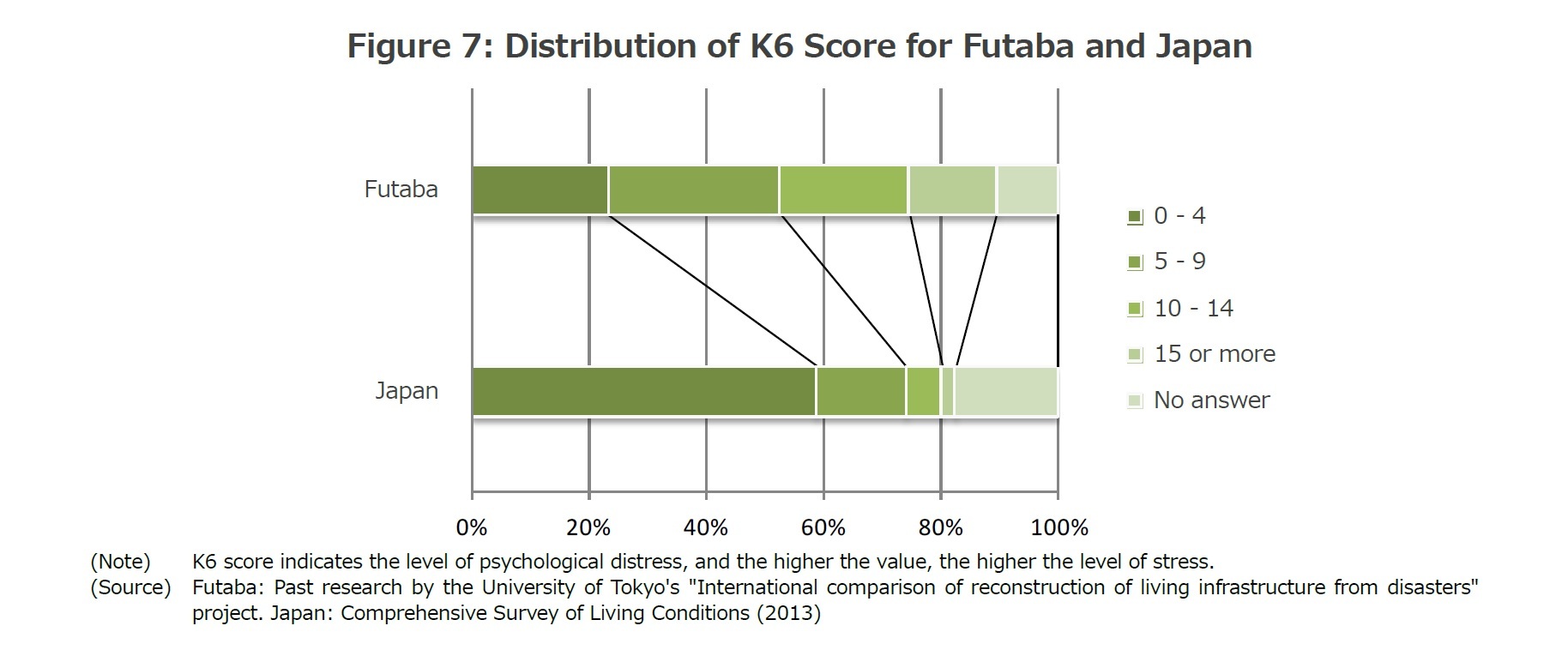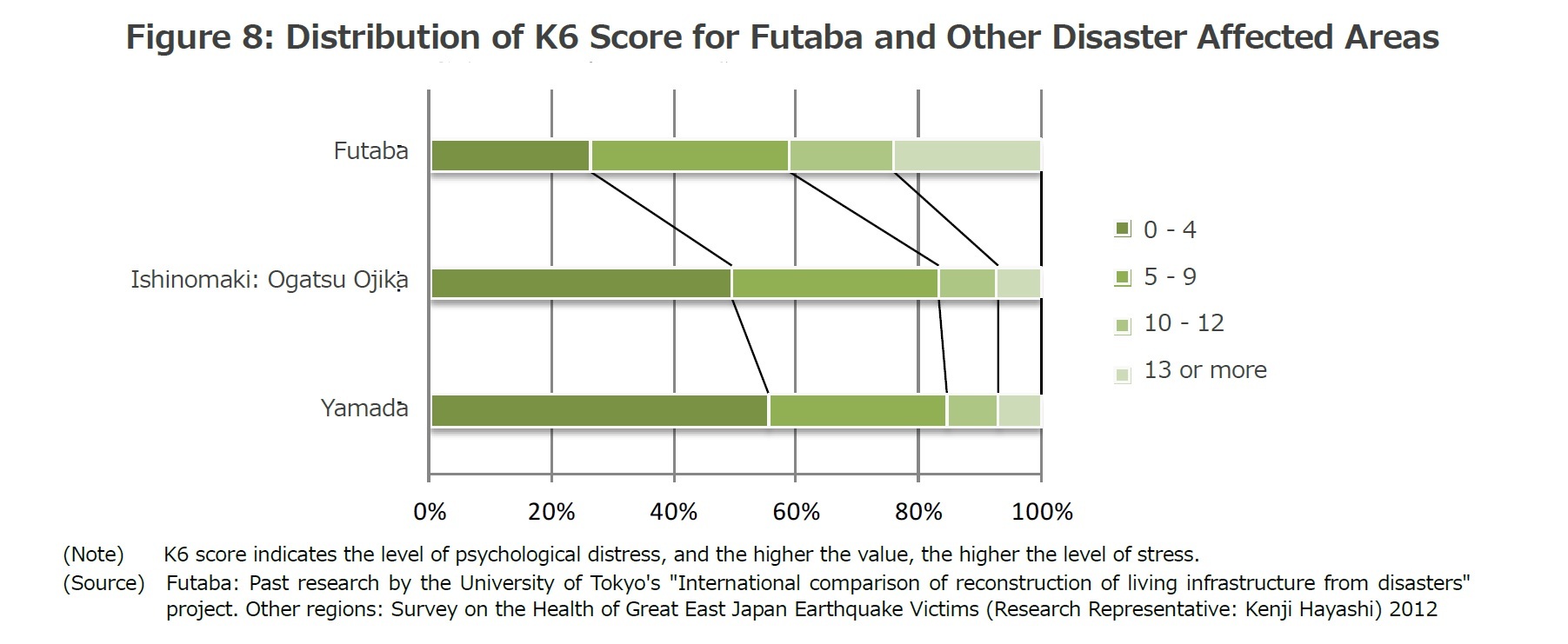- NLI Research Institute >
- Life >
- Damage, Information Acquisition Route, and Reconstruction Under the Great East Japan Earthquake-The 1st Survey of Nuclear Disaster Evacuees from Futaba, Fukushima, Summary of Results 2013
Damage, Information Acquisition Route, and Reconstruction Under the Great East Japan Earthquake-The 1st Survey of Nuclear Disaster Evacuees from Futaba, Fukushima, Summary of Results 2013
Insurance Research Department Keiko Iwasaki
Font size
- S
- M
- L
1――Basic Information
The survey targeted heads of households and Figures 1 and 2 show the distribution of age and gender of the respondents. As we can see from these figures, compared to the age and gender distribution reported in the national census, the age distribution of the respondents is left-skewed, with the majority of respondents in their 60s. The gender distribution shows that the majority of respondents are male. In addition, since the survey was conducted after the tremendous disaster, it is possible that the distributions of the respondents' characteristics are significantly different from those of general questionnaire surveys. Therefore, it should be noted that the results of this survey do not necessarily indicate the general trend of Futaba residents.
1 This research was supported by the following research grants.
Grant-in-Aid for Scientific Research (15 J09313, 26220502, LZ003), Research Grants of the Japan Center for Economic Research.
This study is approved by the Ethics Committee of the University of Tokyo (19 -73).
2――Change in Social Capital
There are several indicators that are commonly used to measure social capital, but we focused on three items which are the level of "generalized trust", "frequency of mutual assistance with neighbors" and "participation in hobby activities". As shown in Figure 3 to 5, all of these three indicators show that social capital has weakened because of the disaster. In addition, our further analysis show that the frequency of mutual help and participations in hobby activities decreased especially among those who do not have many neighbors from Futaba at the evacuation destinations.
3――Health Condition
Moreover, with further analysis, we found that those who could keep good subjective health status after the disaster, those who have high income after the disaster and those who could keep high level of generalized trust tend to keep good mental health status after the disaster.
In addition, hearing from some Futaba residents about their psychological distress caused by the substantial deduction of their living space at evacuation destinations compared to homes they used to live in Futaba, we tested if the deduction of living space led psychological distress among Futaba residents using our dataset. As a result, even after controlling for age, gender and income level, we found that those who used to live in larger homes in Futaba tend to have higher K6 scores after the disaster. In other words, those who used to live in larger homes before the disaster tend to be under higher stress after the disaster. The result empiricaly supports the opinions of Futaba residents that the deduction of living space caused by the disaster led psychological distress among Futaba residents.
We intend to continue our analysis and contribute to the improvement of disaster preparation/rehabilitation policies.
Our survey results are based on aggregates and analyses of responses from approximately 20% of the households of Futaba and do not represent all Futaba residents. Since the survey was conducted after a major disaster, the characteristics of respondents may be very different from general surveys and there is a possibility of an overestimation in our results due to the deterioration of physical and mental health conditions. Therefore, special caution is required in interpreting the results, and any definitive judgments based solely on these findings should be avoided.

03-3512-1882


















